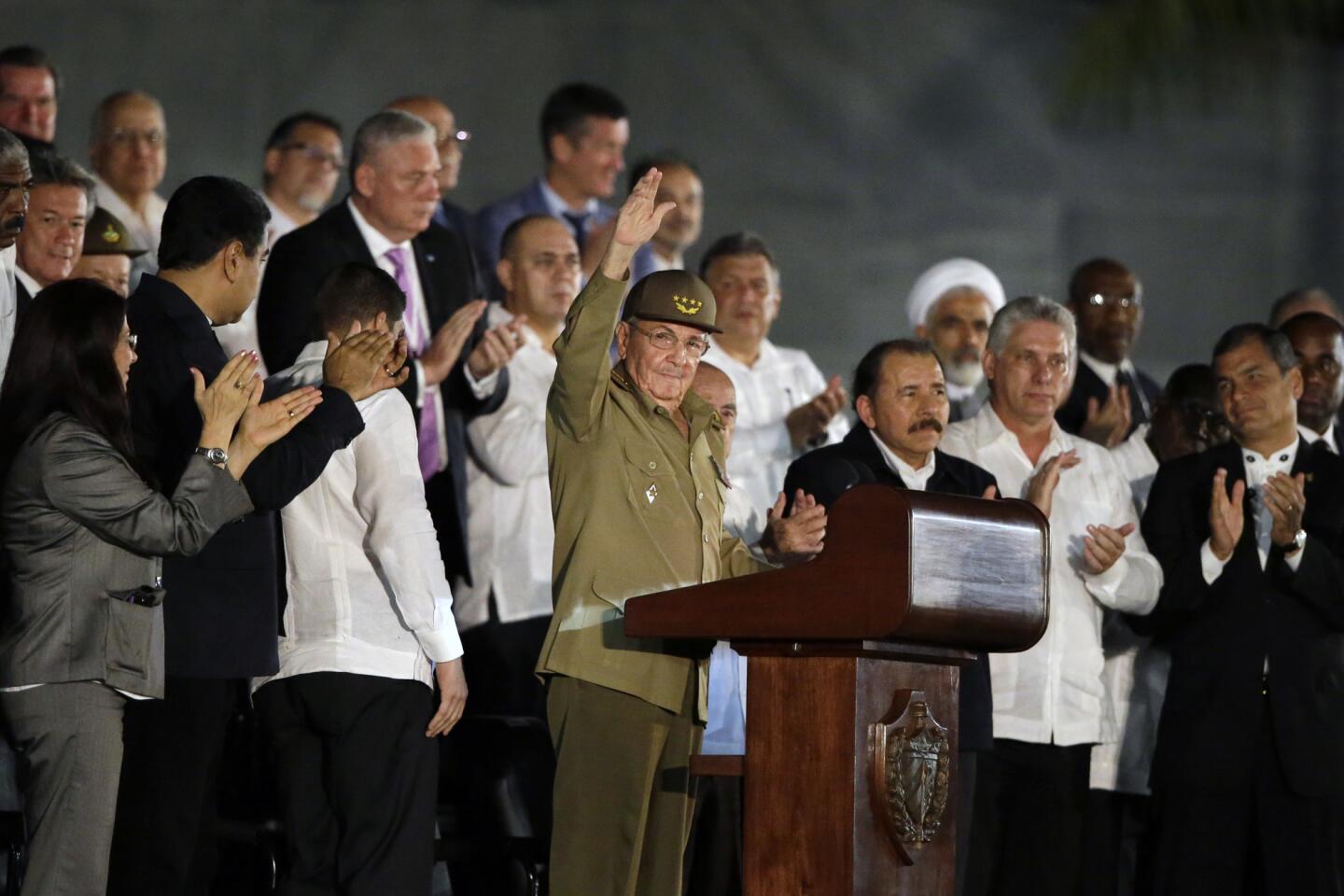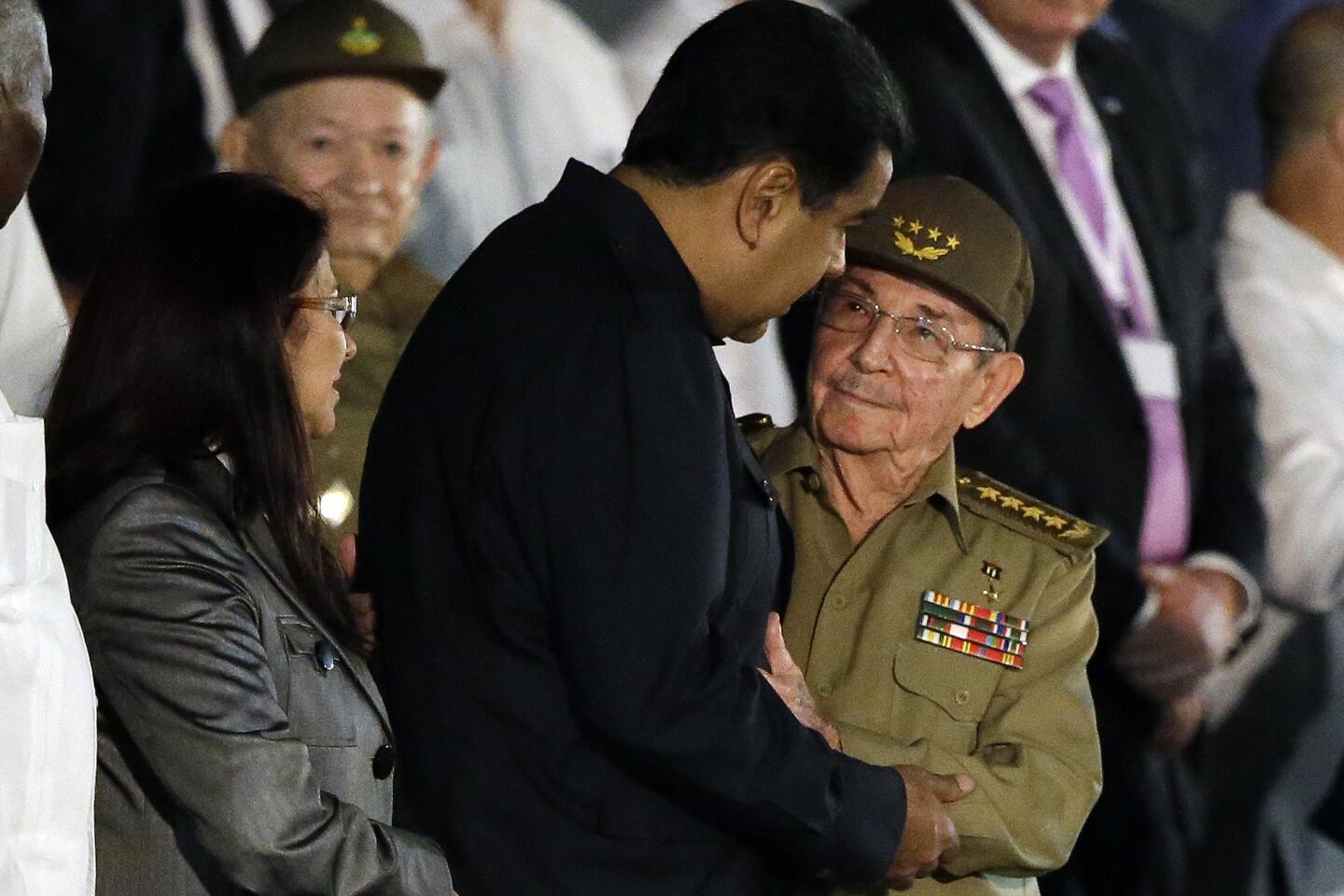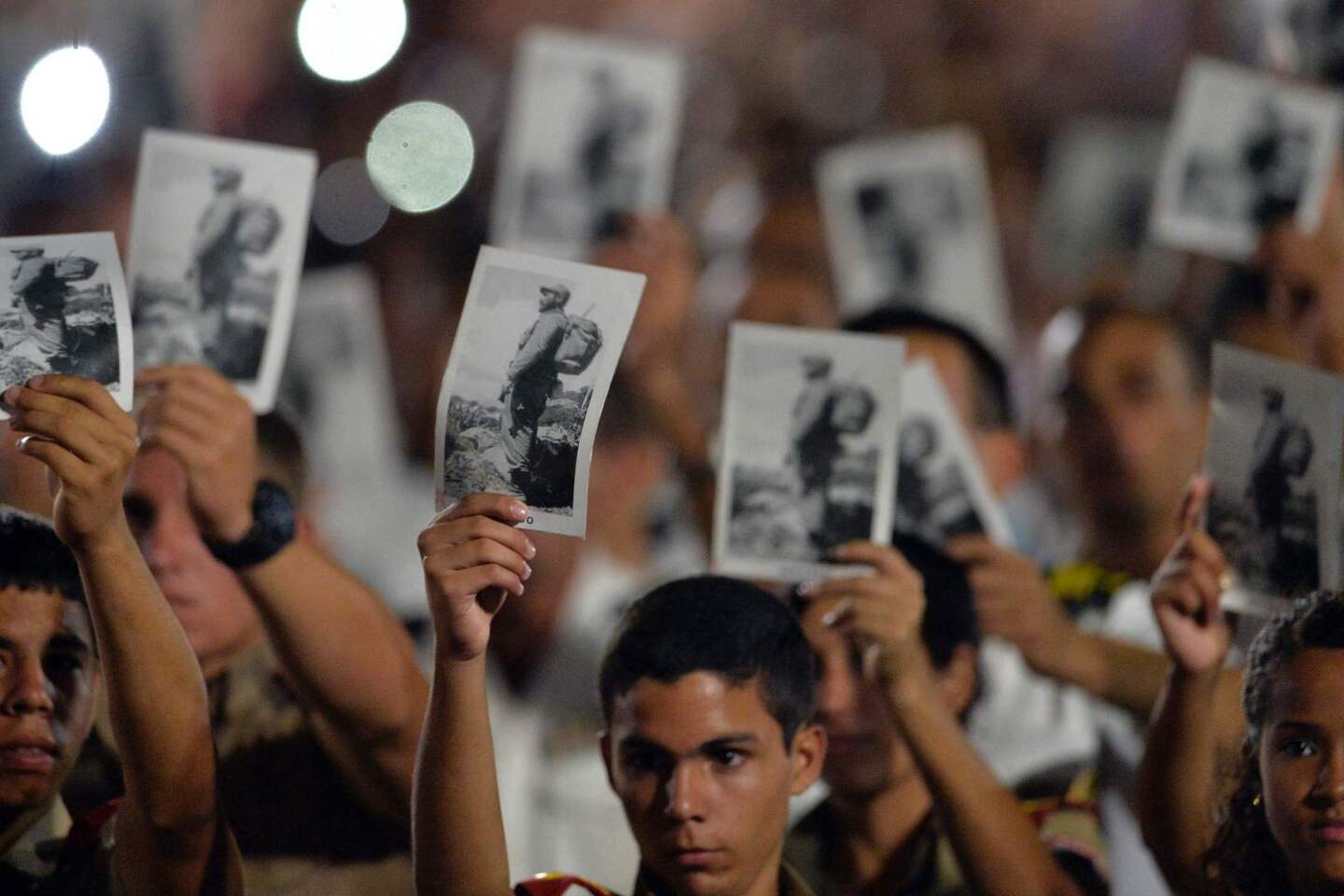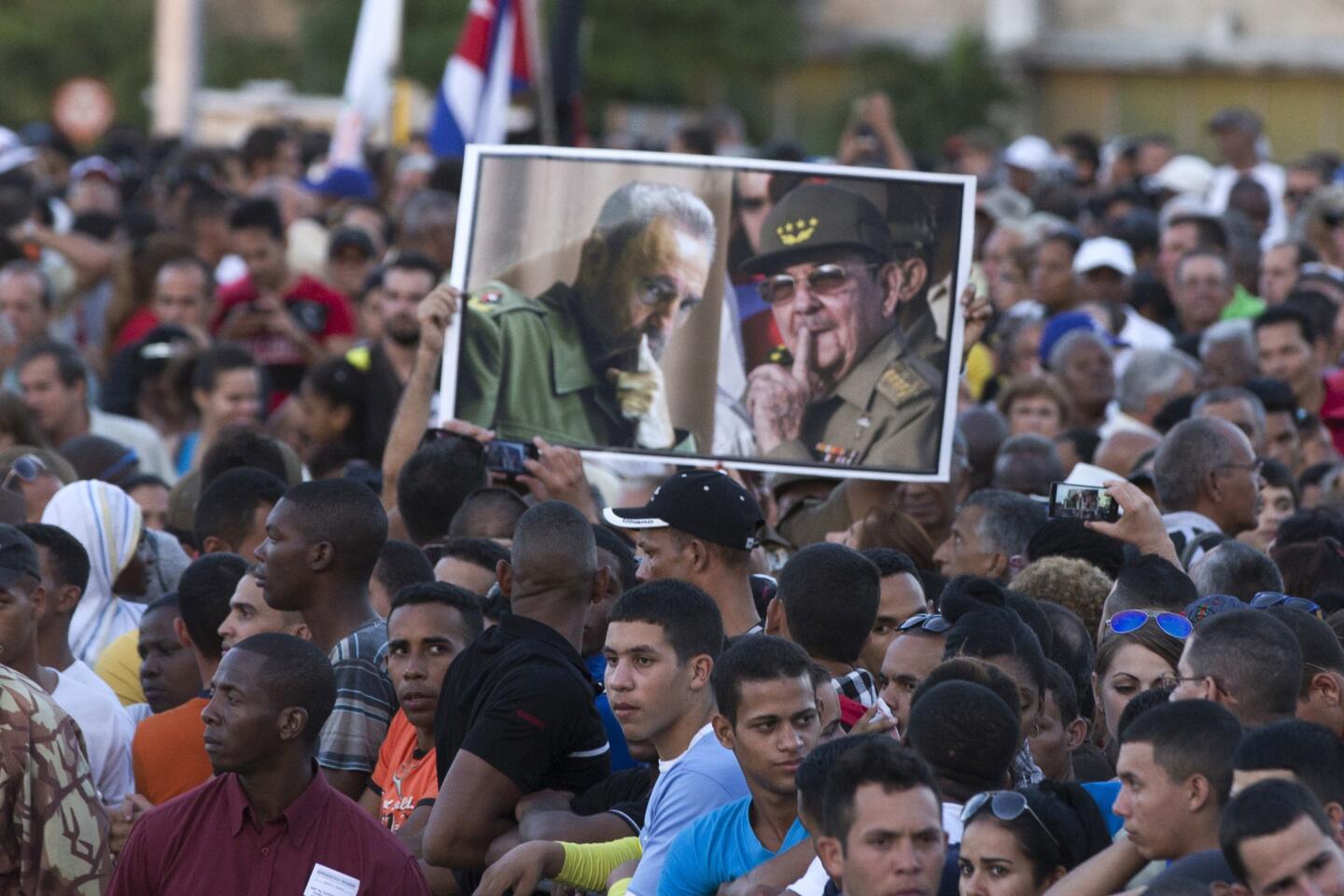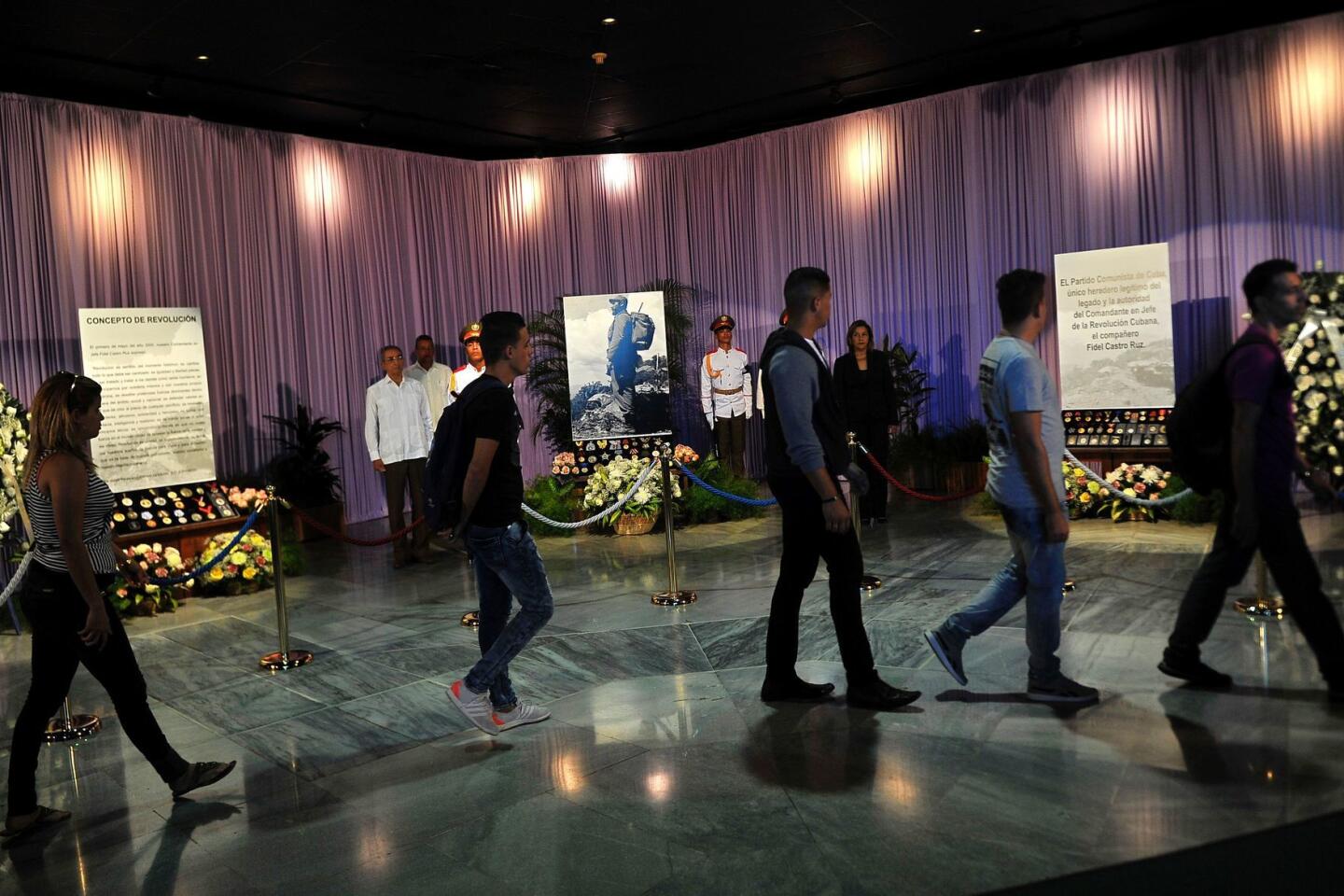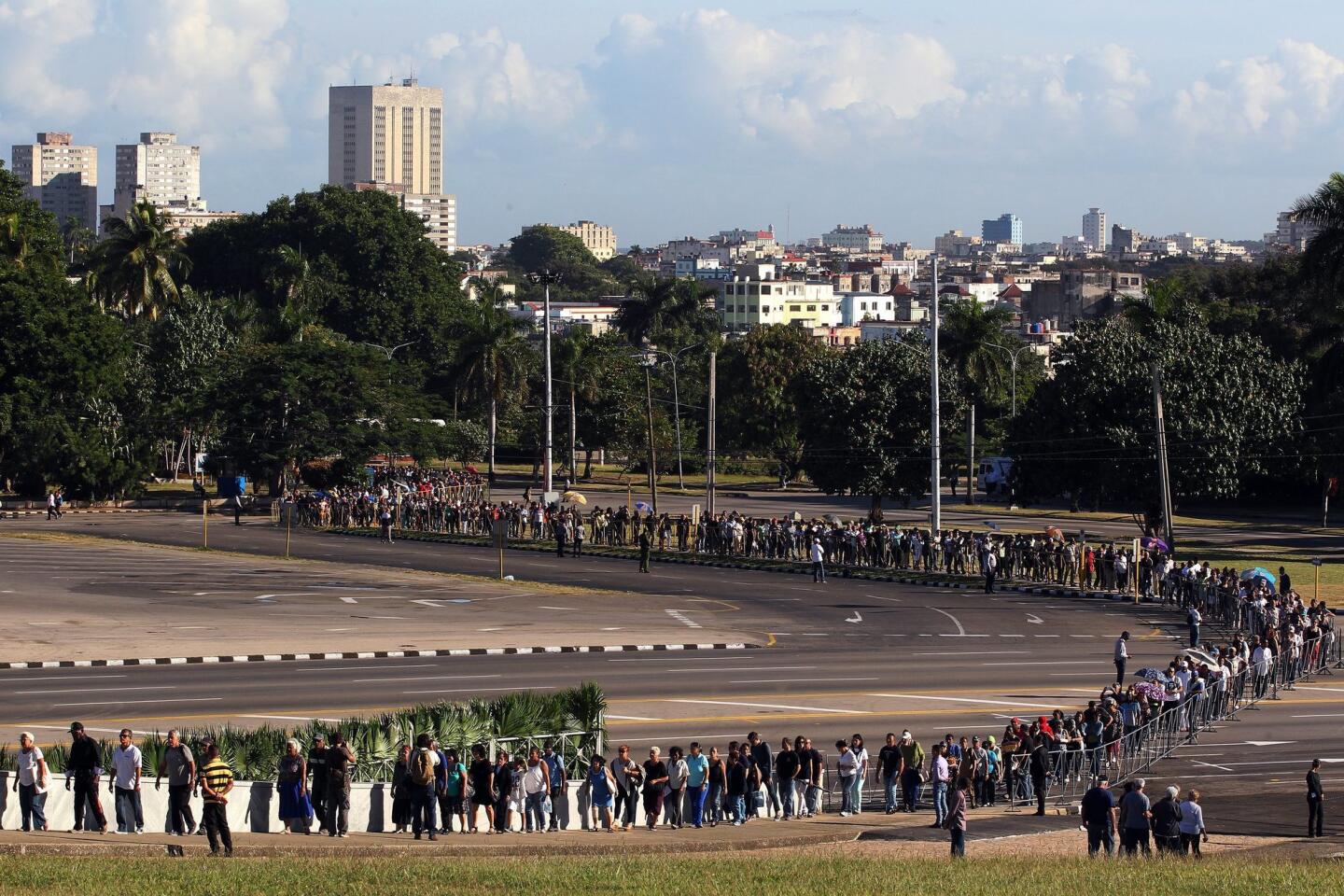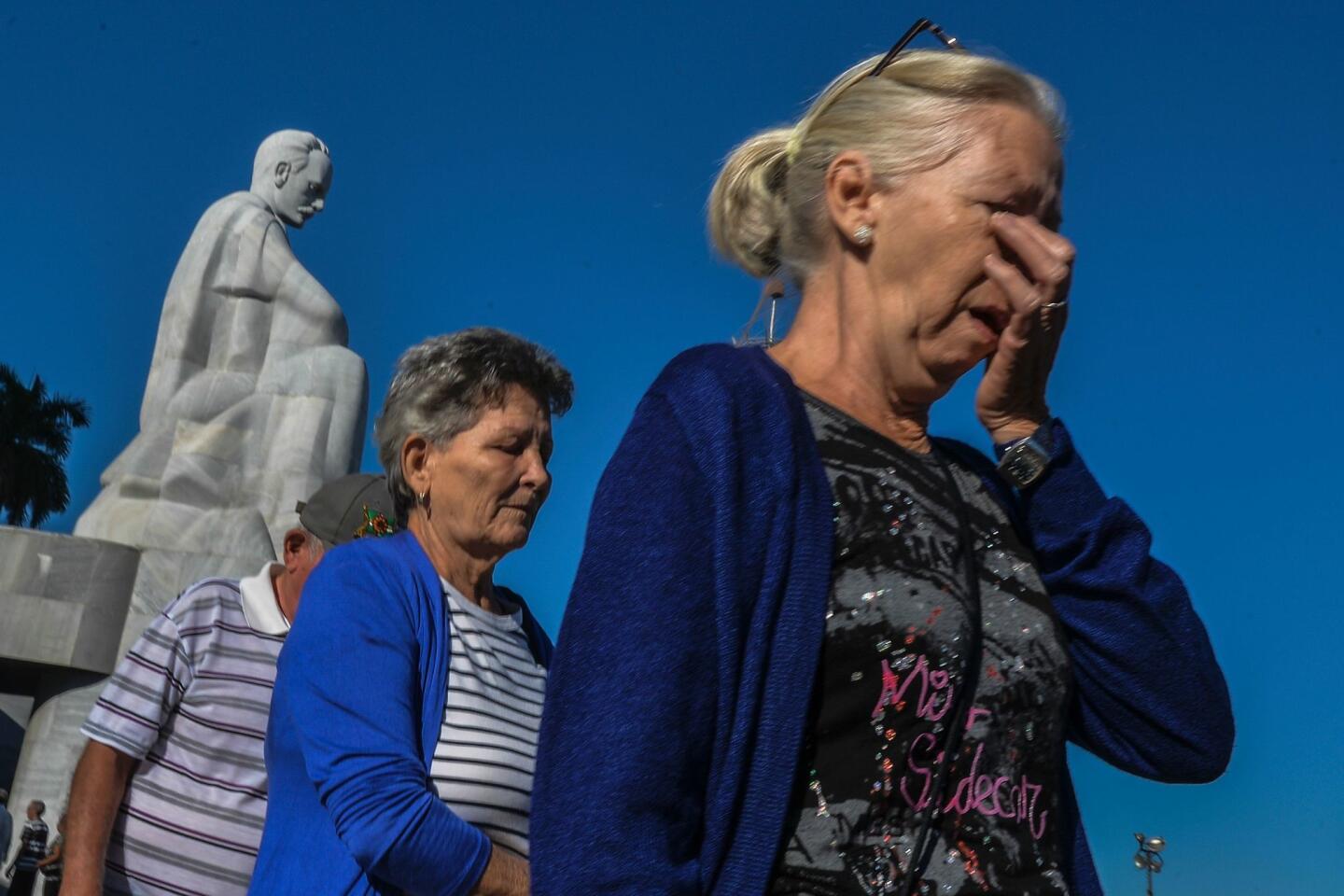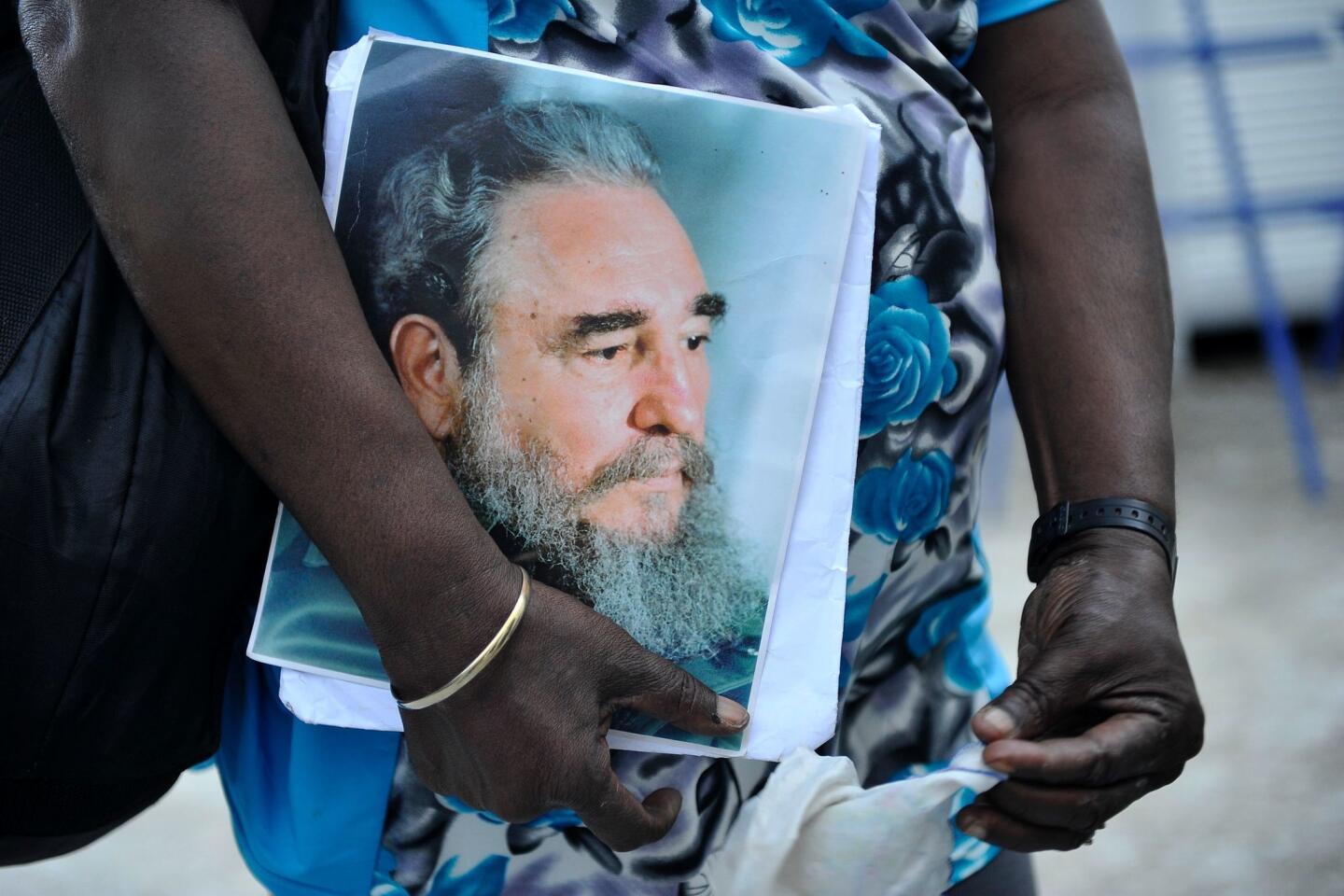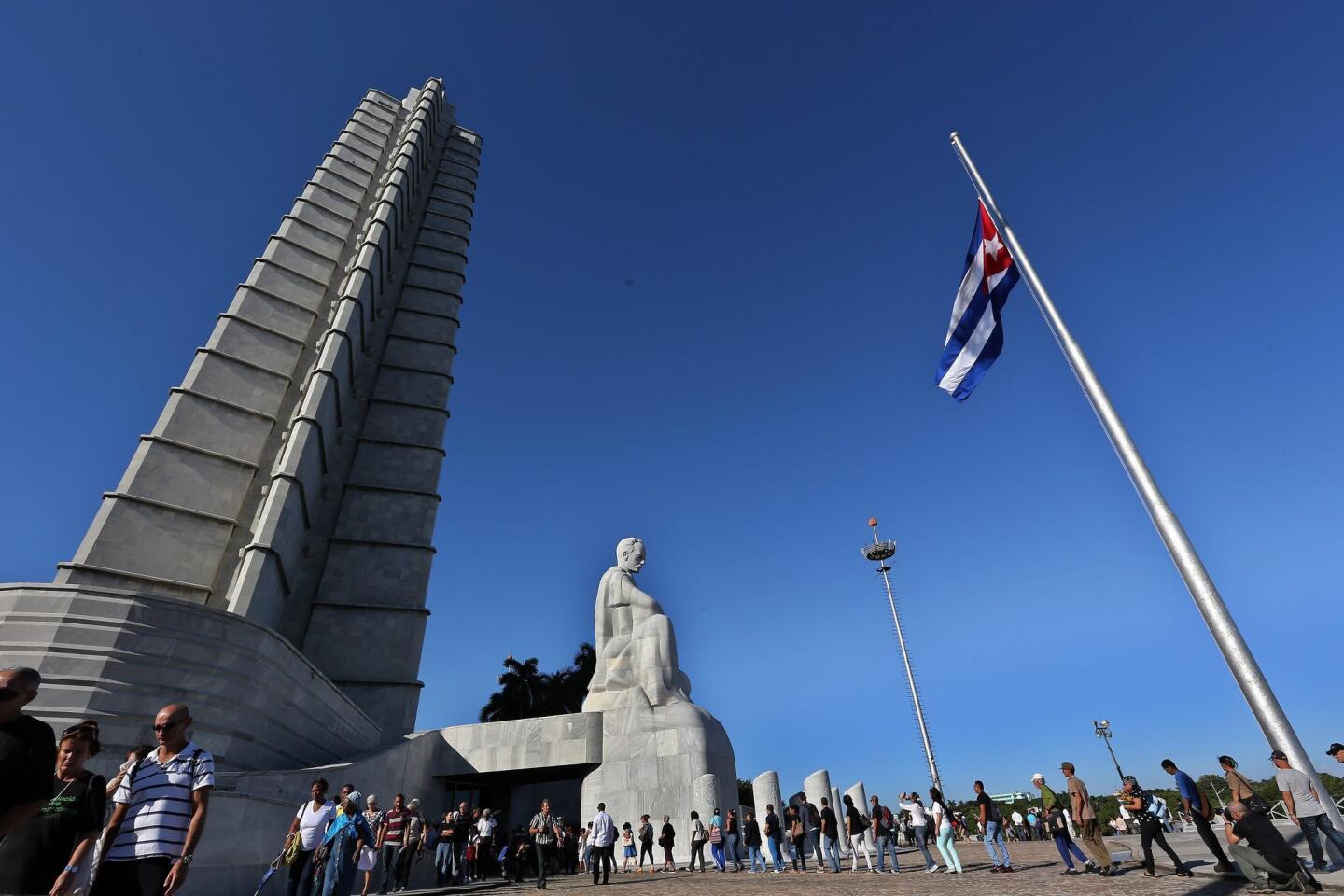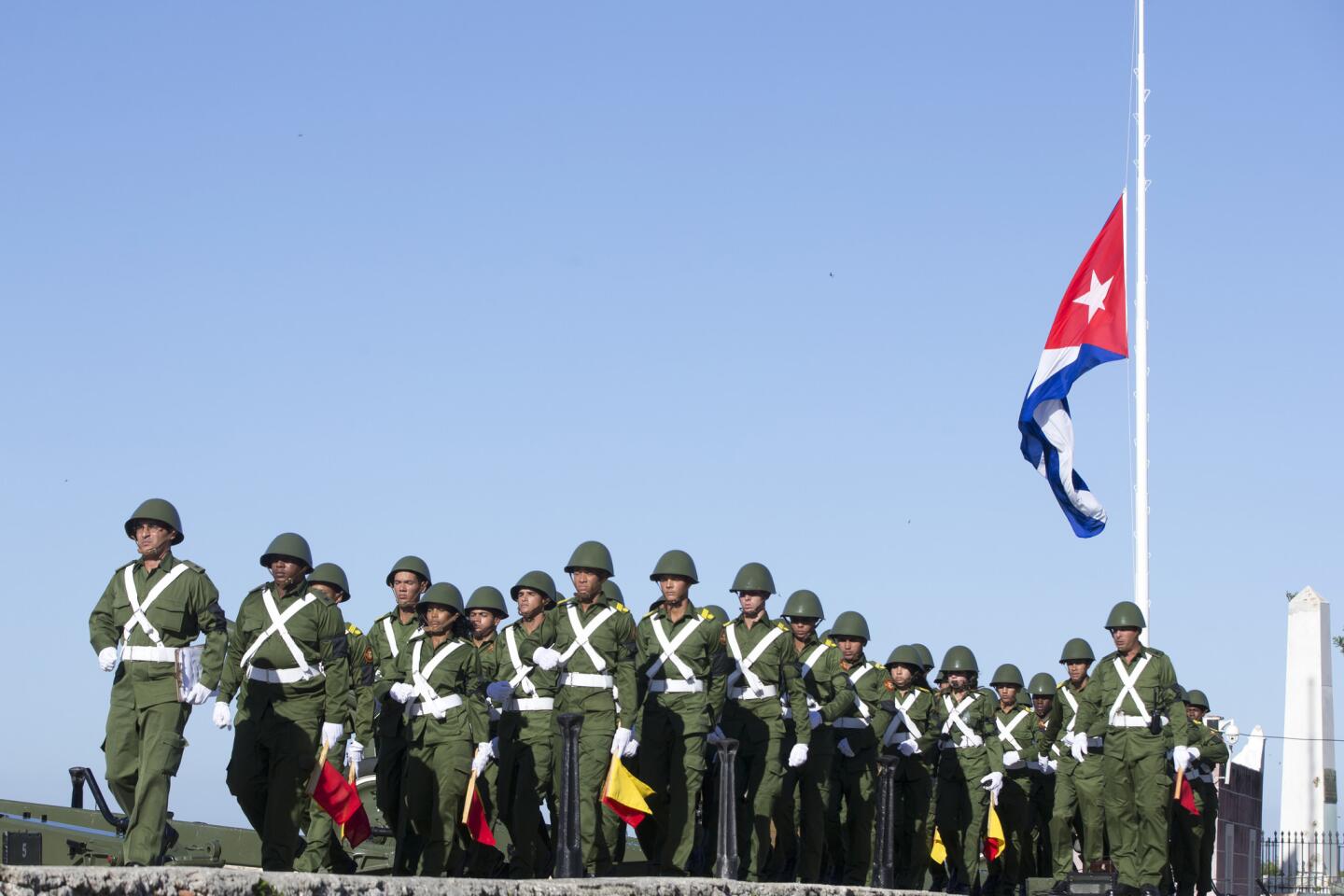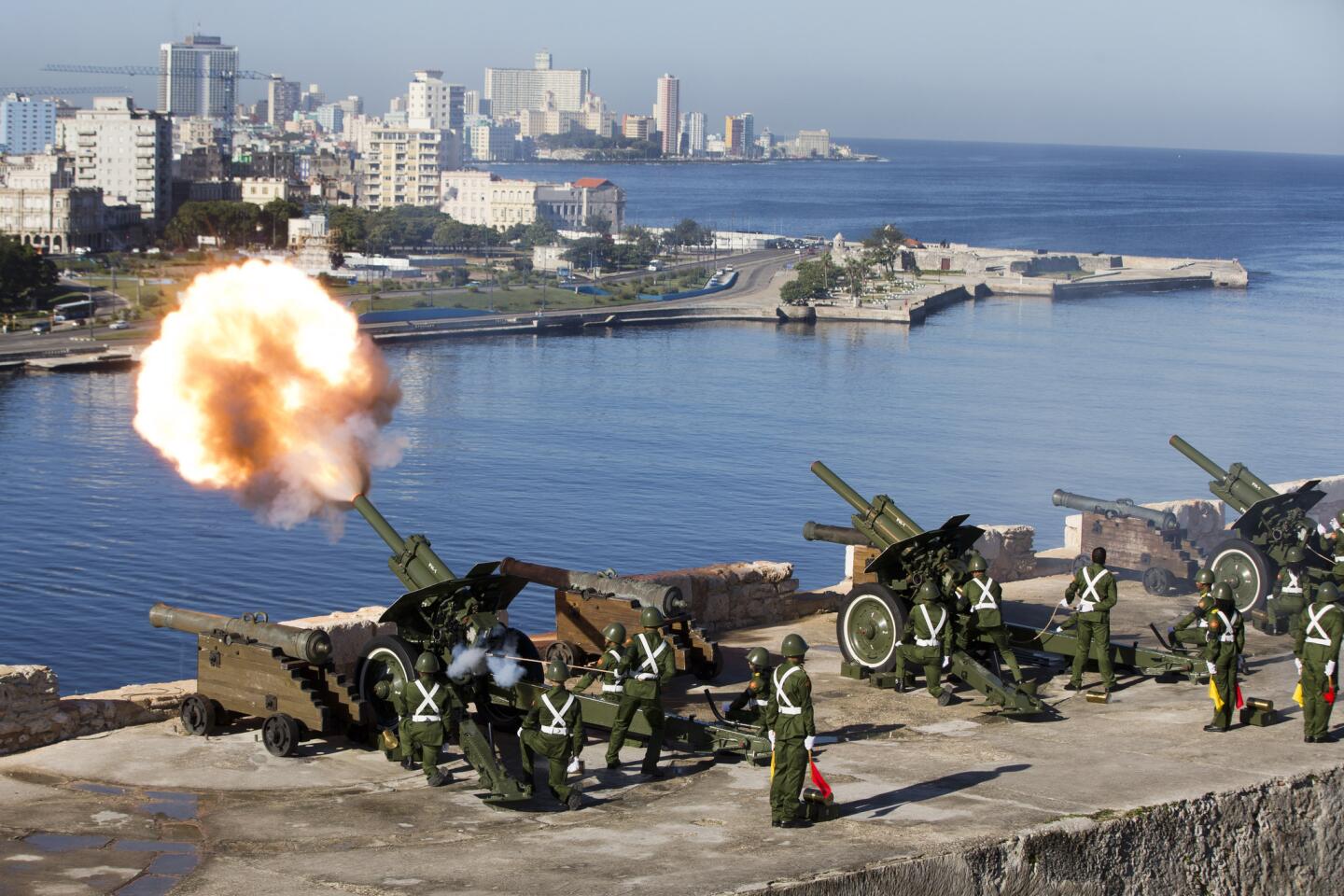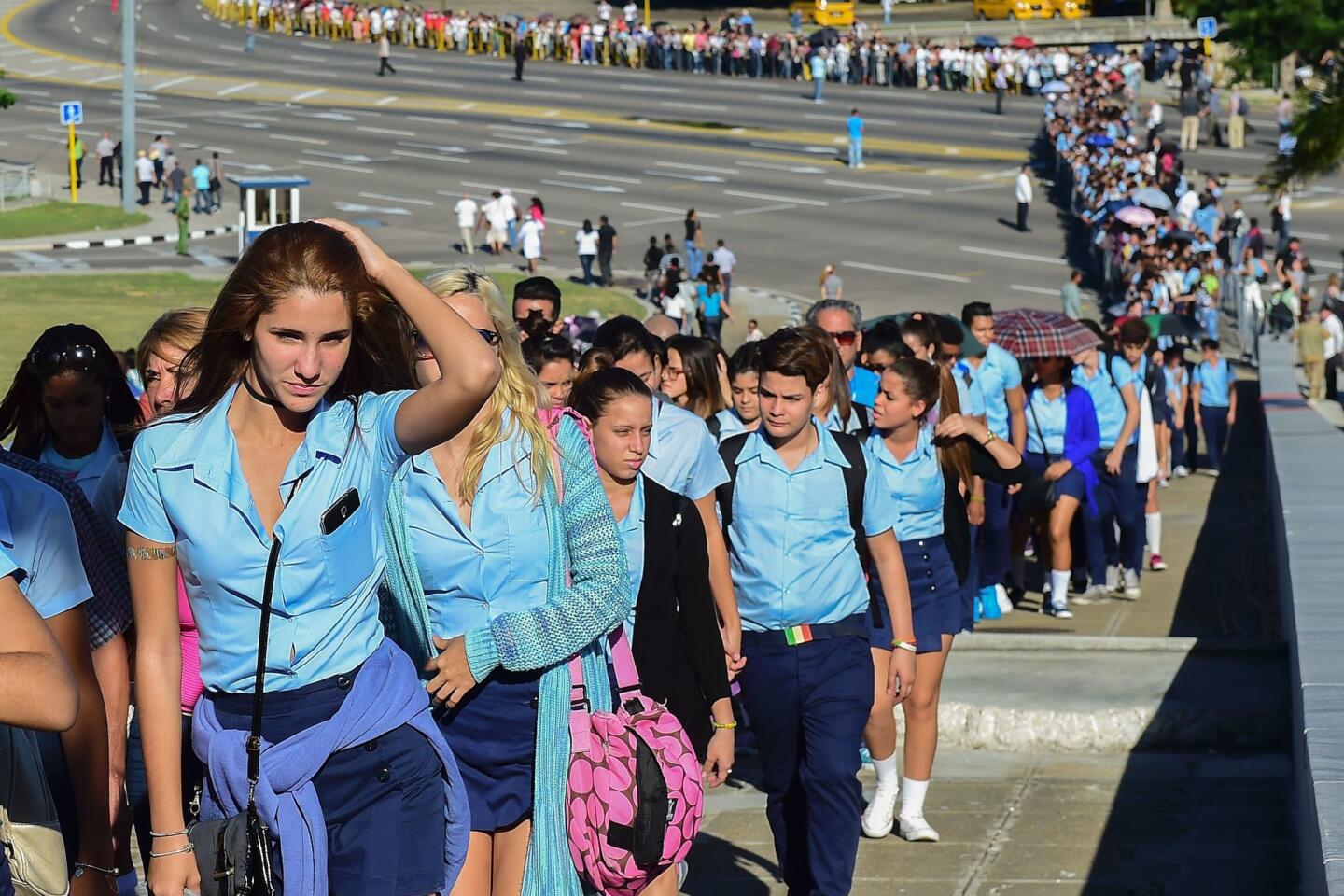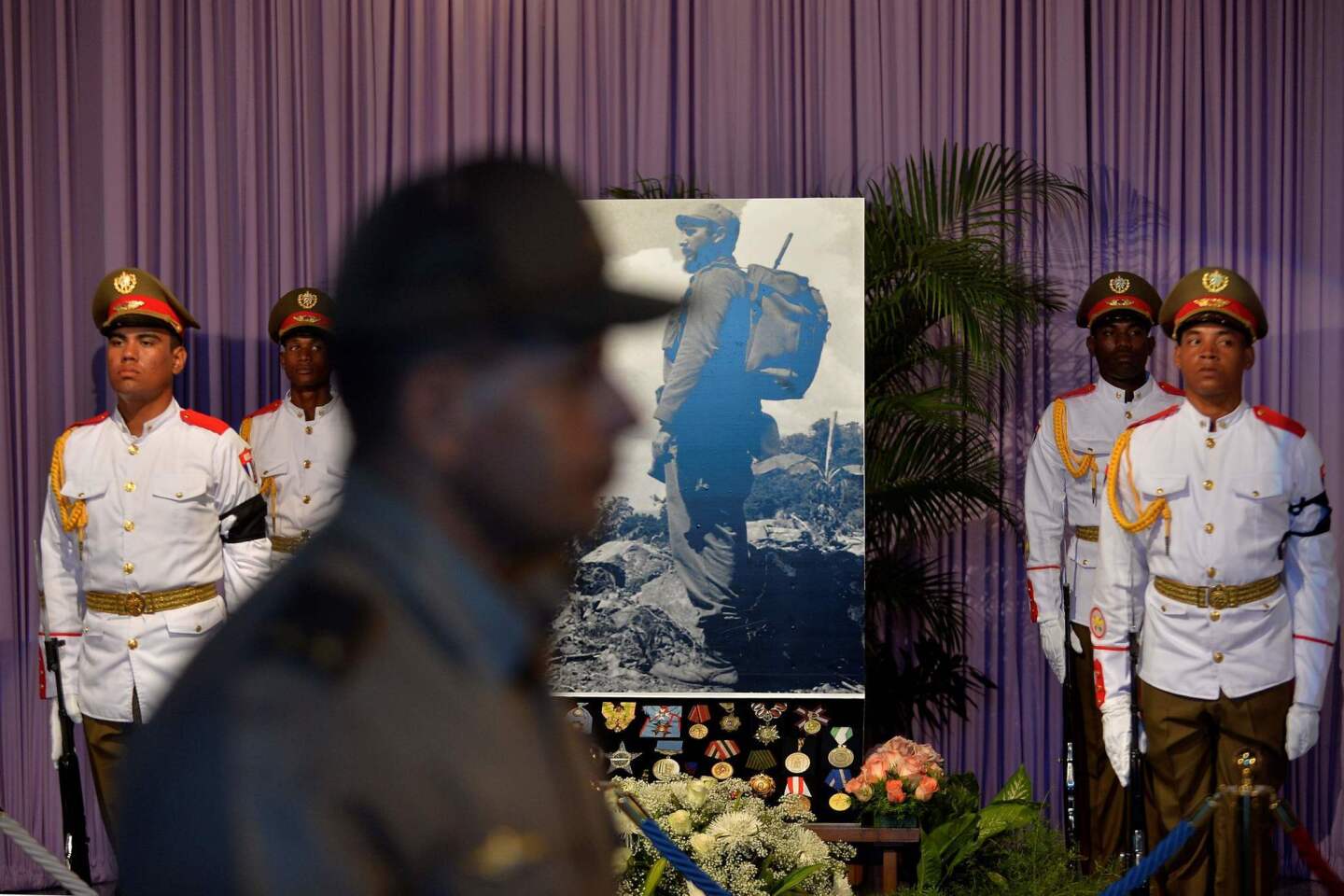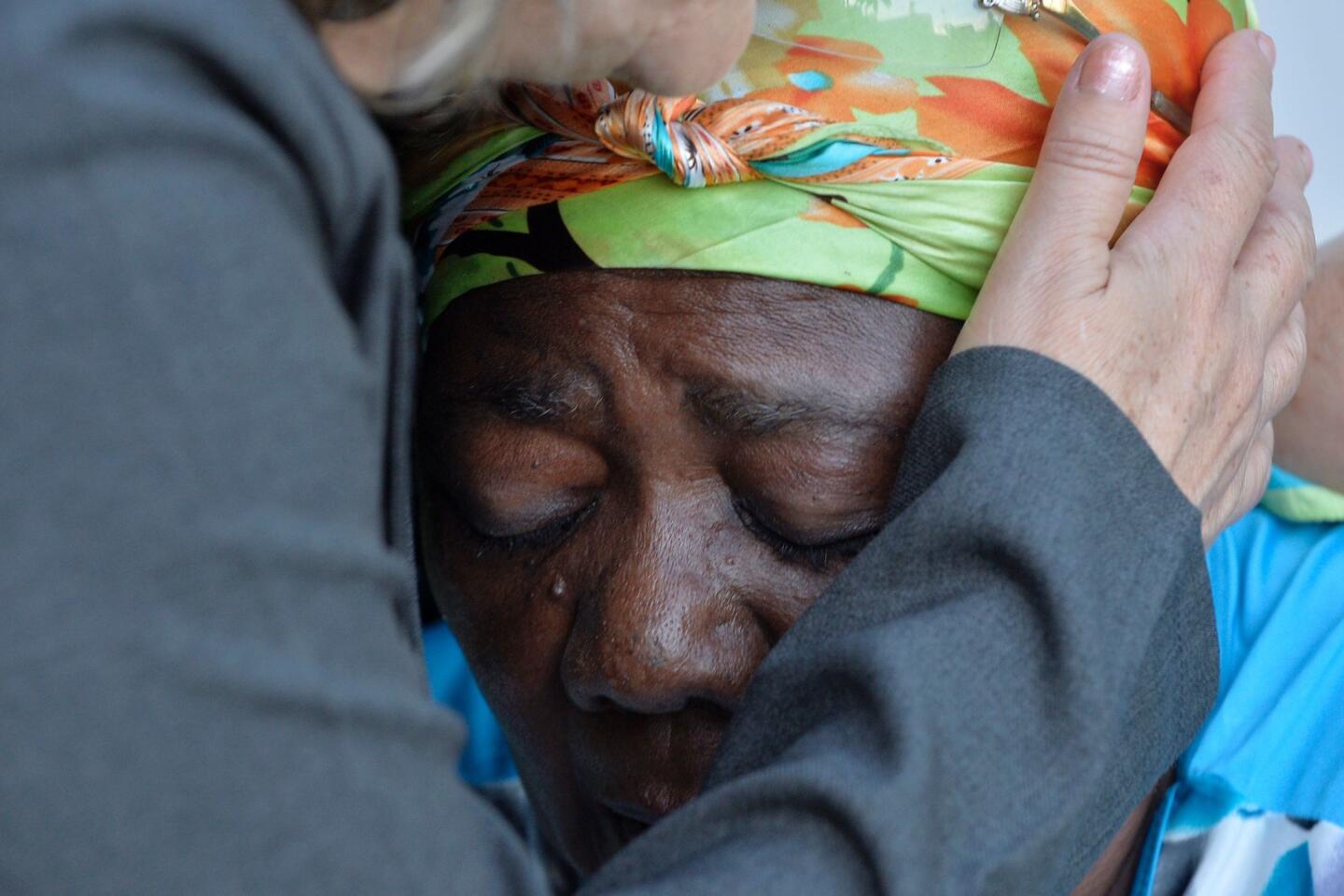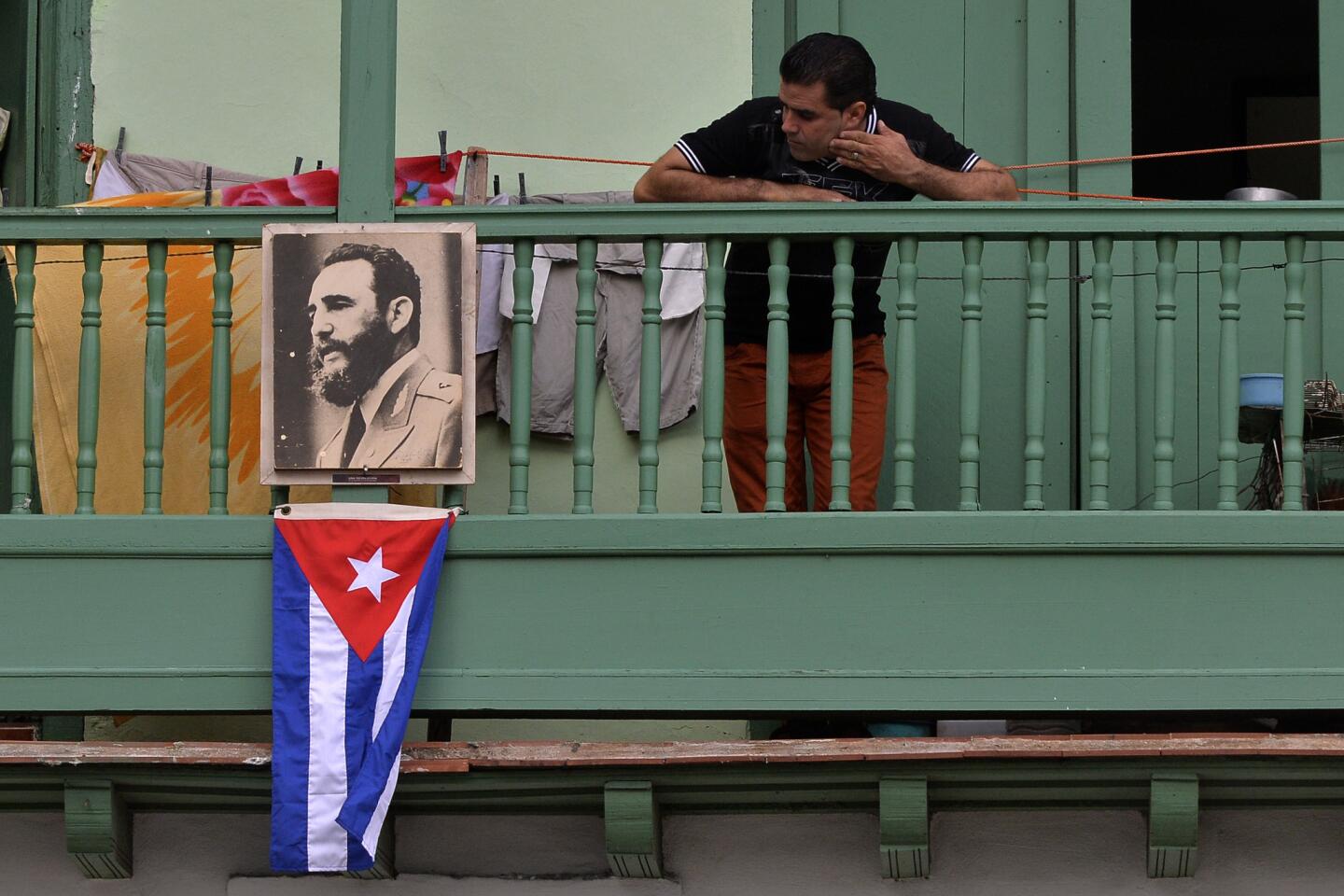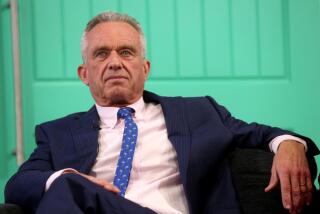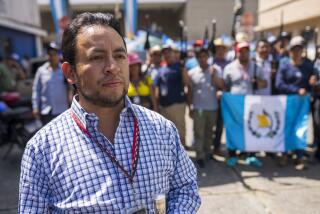Raul Castro speaks on his brother’s death, but gives few hints about Cuba’s future
Cuban President Raul Castro joined other world leaders on Tuesday in extolling the legacy of his brother Fidel — but gave little hint about the future direction of the country.
“Fidel dedicated his whole life to solidarity … with the poor,” said the younger Castro, to whom Fidel Castro ceded power 10 years ago in a seamless transfer of leadership. “And for the poor he became a symbol of the anti-colonial and anti-imperialist fight, for the emancipation and dignity of the people.”
Castro spoke for 13 minutes, providing a subdued ending to a 4½-hour memorial service at Revolution Plaza. In conclusion, Castro repeated one of his sibling’s trademark closing slogans:
“Hasta la victoria siempre!” (“Until victory, always!”)
The celebratory eulogies from Castro and other world leaders barely hinted at the fact that Fidel Castro, who died Friday at age 90, was among the most divisive leaders of the 20th century. Castro, a central Cold War figure, led the Cuban revolution that seized power in 1959.
His admirers applauded him as a champion of the oppressed and a resolute foe of U.S. “imperialism.” His enemies have condemned Castro as a Marxist dictator who jailed dissenters and wrecked Cuba’s economy, forcing many to flee the island.
The plaza where the memorial took place is the same expansive venue where Castro had delivered some of his most famous speeches, addressing the masses in fiery orations that inevitably blasted “the empire to the north” — the United States, his longtime antagonist.
Castro even voiced reservations about his younger brother’s move to fashion a limited rapprochement of sorts with the United States and the Obama administration.
Raul Castro, 85, has said he will step down from power in 2018. What direction the leadership will take after the departure of the Castros remains an open question.
Since assuming power, Raul Castro has taken steps to open up Cuba’s economy, allowing more private businesses and giving Cubans greater freedom to travel abroad.
But Castro has not embraced political reforms that would threaten the Communist Party’s control of the island. Nor has he moved to increase freedom of speech or the press, reforms that critics have long demanded.
The island nation is in the midst of a nine-day mourning period that is scheduled to conclude with the burial of Fidel Castro’s ashes in the eastern city of Santiago de Cuba. A caravan left from Havana on Wednesday carrying his ashes across the country.
The speeches by the younger Castro and other dignitaries followed two days of extraordinary public mourning in Havana. Tens of thousands of Cubans from all walks of life trekked to shrines set up to honor Fidel Castro in Revolution Plaza, often waiting hours for a quick glimpse of flower-bedecked memorials.
In Havana, Fidel Castro’s passing marks the end of an era »
The massive outpouring of appreciation and grief yielded images that were a stark counterpoint to the widely viewed visuals of Cuban Americans in Miami celebrating the death of the revolutionary icon.
Many participants hoisted likenesses of Castro, along with Cuban flags, as they walked up Avenida 20 de Mayo toward the plaza.
While paying homage, some mourners also voiced hope that Raul Castro would accelerate efforts to modernize Cuba and energize the island’s long-desultory economy.
“The truth is that Raul Castro has made changes that Comandante Fidel never made, but there’s still a lot to be done,” said Maria Salcedo, 36, who came to offer last respects. “But I hope that the situation on the island gets better especially for my children, that they have a better life than mine.”
Carlos Trejo said he and others came to express “our thanks and admiration” now that Castro is gone.
“And I’m sure that now with Raul Castro things will remain on a positive path,” Trejo added. “He has made changes that have benefited Cubans and we believe that will continue.”
Among the dignitaries who arrived in Havana to pay tribute to Fidel Castro were the presidents of Mexico, Venezuela, Nicaragua, Bolivia, Ecuador, Panama, South Africa and Zimbabwe.
It was a modest turnout for such a renowned figure, in part reflecting Castro’s controversial legacy and his 10-year formal absence from power. But there was no dearth of accolades on a relatively brisk evening in the Cuban capital.
“Fidel put Cuba on the world map fighting against the greed of the empire,” said Bolivian President Evo Morales, a clear reference to Castro’s longtime archenemy, the United States.
Morales is among a number of left-wing Latin American leaders, including the late Venezuelan President Hugo Chavez, who regarded Castro as a role model.
During Tuesday’s ceremony, South African President Jacob Zuma extolled Cuba under Castro’s leadership for its aid to independence struggles in Africa, including against the former apartheid government in South Africa.
Notably absent Tuesday was Russian President Vladimir Putin. The Soviet Union was long Castro’s major benefactor.
The Obama administration, which moved to open up relations with Cuba after half a century of mutual antagonism, opted not to send an official delegation to the Castro commemoration.
Multitudes of the mourners were bused to Havana from the countryside and outlying areas, and others attended as part of their official duties with the military, police and other government sectors.
Their route of mourning in recent days took them past armed forces headquarters displaying a replica of the Granma, the yacht that in 1956 transported Castro and his revolutionary comrades from Mexico to Cuba with the aim of overthrowing the U.S.-backed dictatorship of Fulgencio Batista.
Massive lighted images of a pair of revolutionaries, Che Guevara and Camilo Cienfuegos, look down on Revolution Plaza. Dominating the plaza is a tower and statue in honor of Jose Marti, the 19th century Cuban independence champion revered by both the Castro brothers and their fiercest foes.
On Tuesdsay, many Cubans were clearly expressing authentic grief for the passing of a towering, if divisive, figure here for more than half a century. Relatively few people today recall a Cuba in which Castro was not a dominant presence.
“My grandmother has been crying for two days,” said Ariel Vazquez, 8, who accompanied his grandmother, mother and three brothers to a mourning shrine.
The shrine featured an image that was said to be one of Castro’s favorites: a black-and-white photograph of him when he was young, in fatigues in the Sierra Maestra, the mountain range that was a redoubt for guerrillas during the revolution.
Special correspondent Cecilia Sanchez contributed to this report.
twitter: @mcdneville
ALSO
Fidel Castro’s divisive legacy is reflected in the guest list at his memorial
As Cubans mourn, Trump threatens to undo Obama’s diplomatic thaw
Despite Fidel Castro’s death, few expect rapid political changes in Cuba
UPDATES:
Nov. 30, 5:55 a.m.: This story updated to say the caravan carrying his ashes has now left.
This story was originally posted at 9:55 p.m. Nov. 29.
More to Read
Start your day right
Sign up for Essential California for news, features and recommendations from the L.A. Times and beyond in your inbox six days a week.
You may occasionally receive promotional content from the Los Angeles Times.
